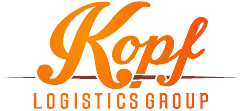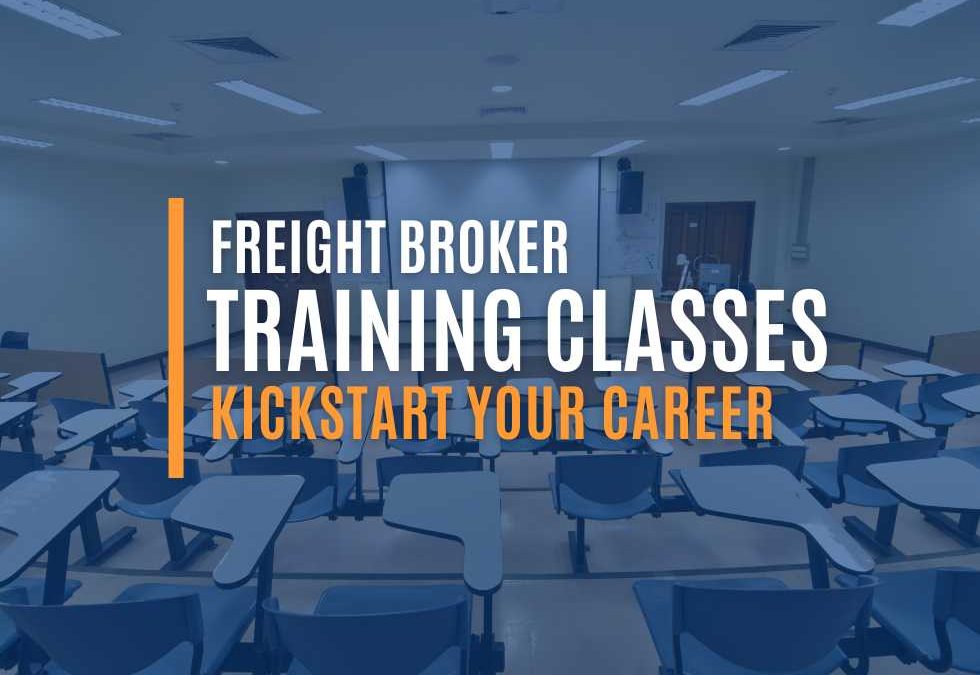Updated December 1, 2025
It is no secret one of the most financially lucrative careers in transportation and logistics is that of a Freight Broker or Freight Agent. With benefits like working remotely, being your own boss, and earning a high commission, it’s an attractive position to consider.
If this is something you want to learn more about you might be wondering: What training or certification do I need to get started? Well, you’ve found the right article! Let’s take a look at the job requirements, what to look for in Freight Broker training classes, and the top programs available today so you can make an informed decision.
Freight Broker Job Requirements
The good news is, no special background is required to become a Freight Broker or Freight Agent. While previous experience in transportation or logistics can be helpful, this role requires a unique skill set – heavy in sales – that can be learned with determination.
It is important to note a distinction, however, between the role of a Freight Broker and a Freight Agent.
A Freight Agent works under a Broker’s financial and legal authority. As such, it is easier to get started as an Agent. A Broker must have strong financial backing to purchase and maintain a Surety Bond and proper licensing through the Federal Motor Carrier Safety Administration. (Read more about the differences between Brokers and Agents here.)
What to Look for in Freight Broker Training Classes
While a special background isn’t required, to become a Broker it is worthwhile to invest in training classes to set yourself up for success. For instance, if you aren’t sure which role you are most interested in, be sure to look for a course that provides training on both becoming a Broker and an Agent. Additionally, it is important to look for these five things before choosing a course.
1. Accreditation and Certification
There is not a governing body that accredits or certifies Freight Broker training programs. So you do not need to be a Certified Freight Broker or attend an accredited Freight Broker training program. However, we recommend doing research on the person teaching the course. Do they have real-world experience as a Freight Broker? Why are they qualified to teach the course? If you can’t find the information you need about the instructor, reach out to them directly and ask questions. If they don’t respond, they may not be worth your time investment.
That being said, if you are interested in standing out from the crowd, it may be beneficial to obtain a Certified Transportation Broker (CTB) designation. This certification is only provided by the Transportation Intermediary Association (learn more in the top programs section below).
2. Curriculum and Course Content
Start by making a list of the questions you have up front. Then, take a close look at the course outline to ensure your questions will be answered. If you aren’t sure, we highly recommend you reach out to the instructor directly.
Essential topics that should be covered in a comprehensive Freight Broker training program include:
- Defining the role of a Freight Broker
- Freight Broker regulations and compliance
- Contract negotiation and management
- Sales and lead generation training (cold calling is a necessity)
- Rate analysis and pricing
- Carrier selection and relationship management
- Finding loads
- Customer service and communication
3. Experienced Instructors
Since there isn’t a governing body to assess the quality of Freight Broker training courses, it is important the course instructor be experienced. Experienced Freight Broker instructors are the most valuable part of a quality training program. They provide insights and guidance from their real-world experience.
Questions to ask:
- Was the instructor a Freight Broker?
- Was their Freight Brokerage successful?
- How long has the instructor been training Freight Brokers?
You can usually find more about the instructor by taking a look at the about page of a program, looking at the instructor or program’s LinkedIn profile, or by doing a search for the instructor’s name in your favorite search engine.
4. Positive Reputation
A quality program should have a solid reputation. Take a look at the website and notice if there are testimonials of satisfied students. If these are not explicitly provided, dig deeper. One way to do this is to simply go to a search engine and type: “is ___ a good company/program”. Look at both positive and negative reviews.
5. Flexible Learning Options
One of the benefits of our virtual world is flexible learning options. Be sure to choose a program that works with your schedule and learning style.
- Online training: self-paced online course or live virtual class at a scheduled time
- Traditional classes: live in-person at a specific location
If you enjoy having access to your course instructor on demand, a traditional live in-person class or a live virtual class might be a better fit. These courses have a higher cost investment and are offered at specific times. However, if you want to get started right away on your own time and pace, a self-paced online course would work better for you. The key is to be honest with what you need in order to be successful.
Top 3 Training Programs
Course 1: Freight Broker Bootcamp by Dennis Brown
Dennis Brown went from not knowing what a Freight Broker was to doing over $200 million in sales. He was the founding CEO of Logistic Dynamics and after selling his company, decided to put all his knowledge and experience into training others. His program is very reasonably priced and can be completed in a short amount of time.
Dennis also has a wealth of resources on his YouTube channel and blog, including his free 7 step guide to becoming a Freight Broker, which he shares in exchange for your email.
- Format: Online self-paced course
- Cost: $185 for a year of access or $389 for lifetime access, with a 60 day 100% money back guarantee
- Time investment: 30 days (or as long as you need)
- Type of training: Freight Broker and Freight Agent
Learn more about the Freight Broker Bootcamp here.
Course 2: Certified Transportation Broker by Transportation Intermediaries Association
The TIA offers this course to increase business understanding, improve operational and sales skills, and manage risk. By the end of the course and successfully completing the exams, you will earn a CTB endorsement. This is the only endorsement of its kind in the industry and will likely set you apart.
The course is taught by Dr. Joe Hanna, Professor of Supply Chain Management at Auburn University and active member of TIA.
- Format: Online study course and 3 exams
- Cost: $1125 ($675 online course plus $450 for each exam) plus textbook cost
- Time investment: 180 clock hours over 3 trimesters beginning in January and ending in December each year
- Type of training: Freight Broker
Learn more about the Certified Transportation Broker program here.
Course 3: Freight Broker Training by Brooke Transportation Training Solutions
If an in-person class is more your style, BTTS provides a highly regarded program. You have the option to attend live remote or travel to one of their training locations for a five-day intensive training. Classes are small, typically with a 1:10 teacher to student ratio. The instructors are highly qualified with a wealth of experience in the industry.
- Format: Intensive live class at one of five locations: Live remote; Dallas/Fort Worth, Texas; Ontario, California; Charlotte, North Carolina; Jacksonville, Florida
- Cost: $2495 (basic course) or $3995 (advanced course), 100% financial aid is offered for qualified veterans
- Time investment: 5 days
- Type of training: Freight Broker
Note: Brooke Transport now offers virtual remote training.
Learn more about the Freight Broker Training program here.
Final Thoughts
Becoming a Freight Broker or Agent isn’t for the faint of heart. While a specific background isn’t required, it requires dedication, good decision making, problem solving, excellent communication, and a willingness to learn. If this is a role you are interested in, learn more by enrolling in Freight Broker training classes taught by experienced instructors with comprehensive course content in a way that fits your schedule and budget. With a little hard work and training, you’ll be on your way to starting a successful home business in no time!
If you are interested in becoming a Freight Agent, read this next: 5 Benefits of Being a Freight Agent


I’ve been a truck driver for over 20 years I’ve been a member of freight broker boot camp for 2 years and I’m a lifetime member of freight broker boot camp. I’m interested in being a freight agent asap
Hi Dustin! Thank you for your interest! Please learn more about our Agent program and apply here: https://kopflogisticsgroup.com/agent
I would like to get my freight broker license
Hi Jay, that’s wonderful! We recommend the training above. Best wishes!